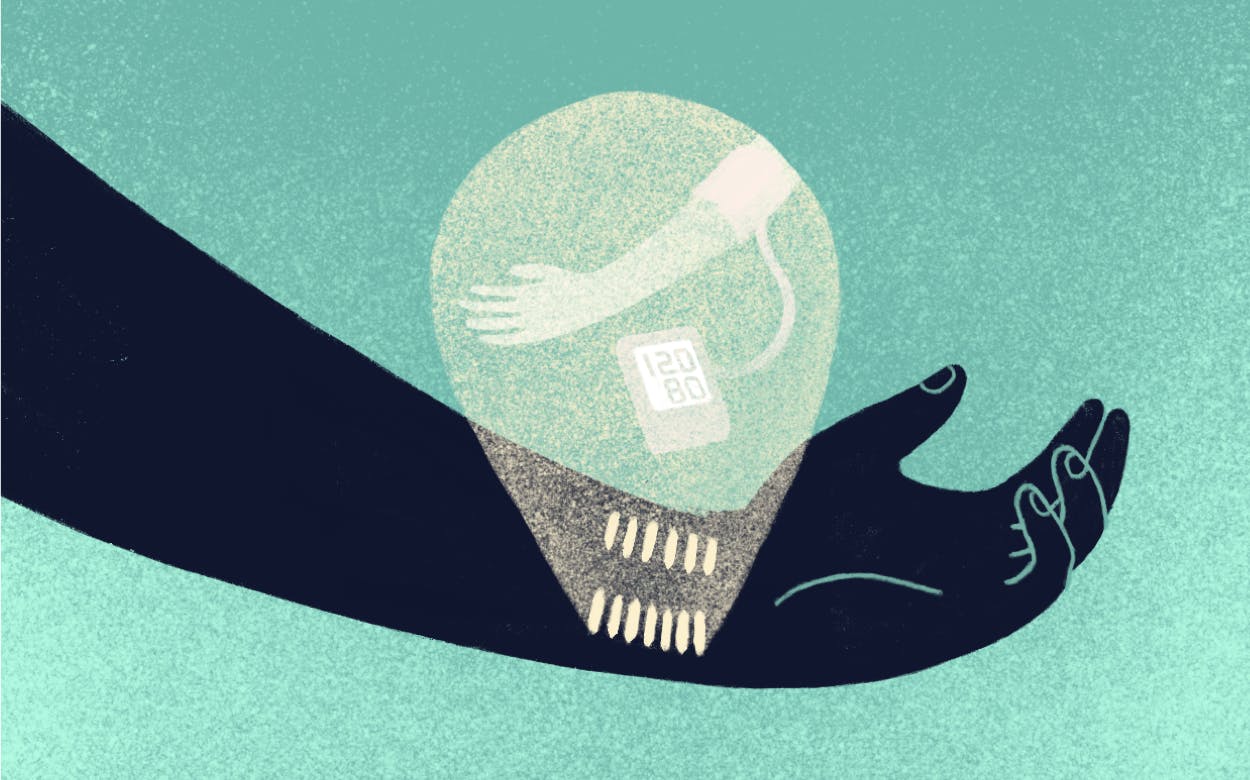Medical technology in a tattoo
Medical technology is getting smaller and smaller. Formerly clunky professional devices now fit into wearables. The next level will be almost invisible patches.

Honey, I shrunk the blood pressure monitor!
Scientists at the University of Texas at Austin have presented a tattoo-like patch that can measure blood pressure.
The electronic tattoos are made of graphene sensors that measure bioimpedance—the electrical impedance to the flow of current through tissue.
The technology is still far from real-world. One step closer to the mass market is Live Metric. The company's smartwatch-like, cuffless blood pressure sensor has just been approved by the FDA.
The magic of real-time health tracking
The magic of the smaller devices is their ability to measure blood pressure continuously. This enables patients who suffer from hypertension to see the direct effects of their behavior on their blood pressure, and thus, to react instantly.
Furthermore, some blood pressure measurements in practices and clinics provide false results because the clinical setting alone causes many people's blood pressure to rise. The phenomenon is known as white coat hypertension, or white coat syndrome.
Their continuous measurement also delivers new applications for other vital signs. For example, modern health tracking devices such as the Oura Ring can provide insights into sleep quality based on the real-time analysis of heart rate and body temperature.
The next frontier of wearable medical technology
Currently, not a week goes by without new products and apps in the field of health tracking wearables. But with tattoo-like patches, the next evolutionary stage is already on the horizon.
Researchers at the University of California San Diego recently unveiled a small patch that can monitor glucose, alcohol, and lactate levels. Researchers at the Graz University of Technology developed tattoo electrodes that can measure brain signals.
And the first patches are already on the market, including the glucose monitor from Supersapiens and the BioStamp Patch from mc10 (acquired by Medidata / Dassault Systems in 2020), which collects clinical-grade biometric, physiological, and eCOA data.